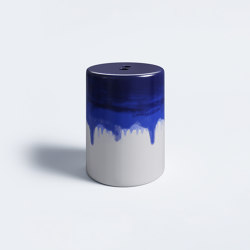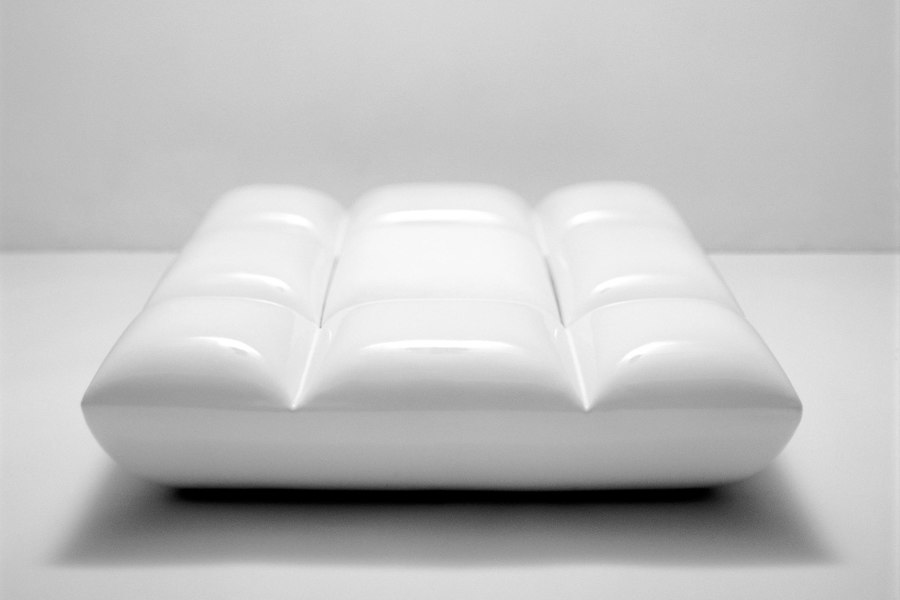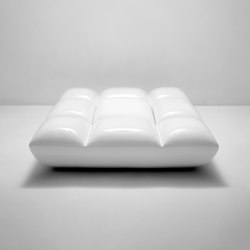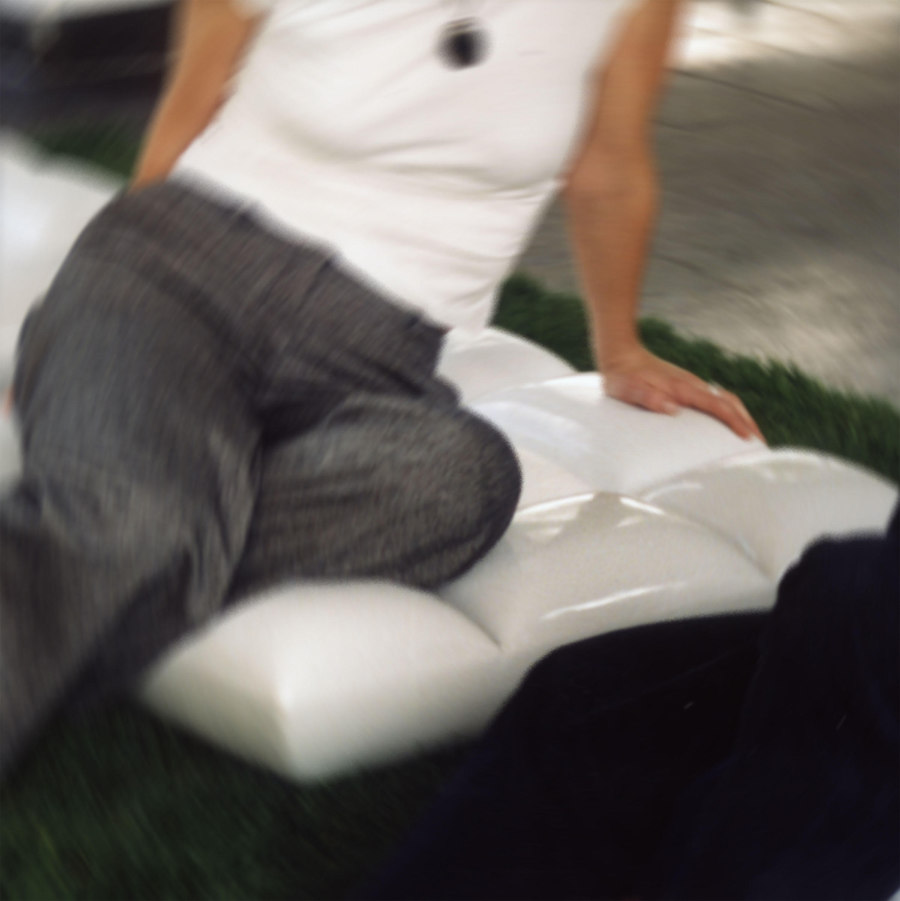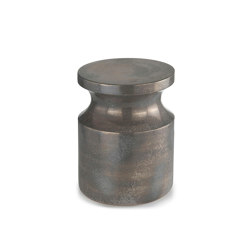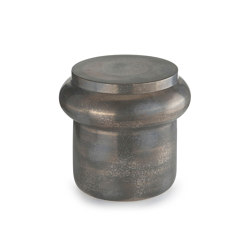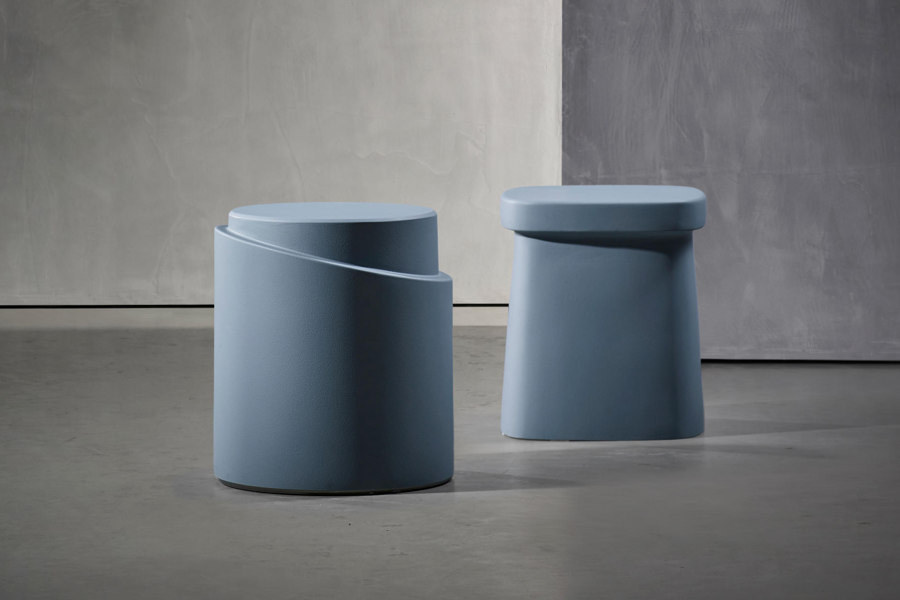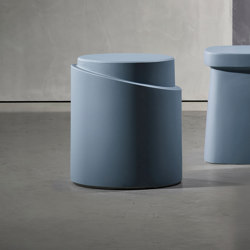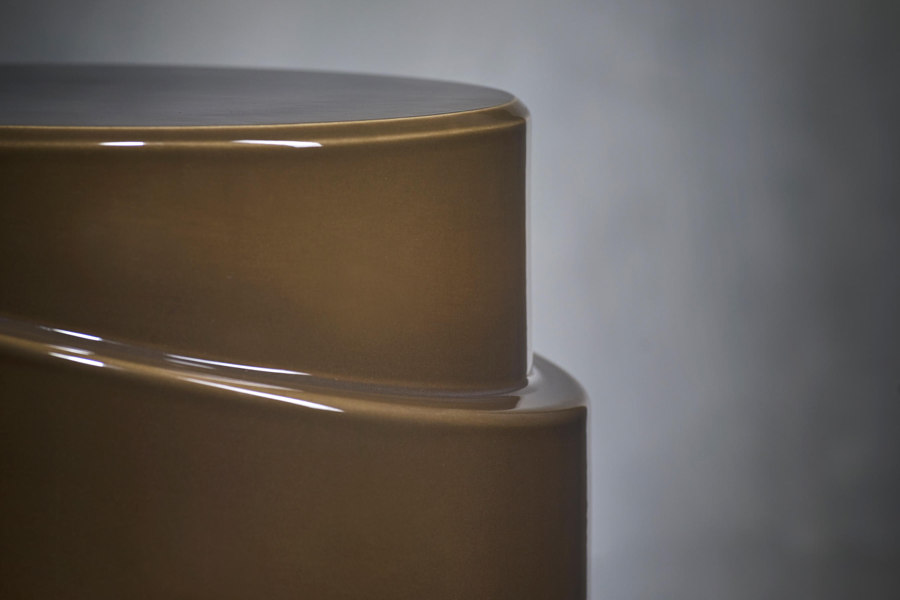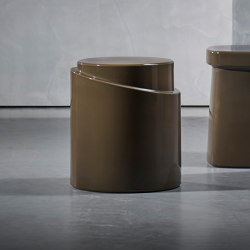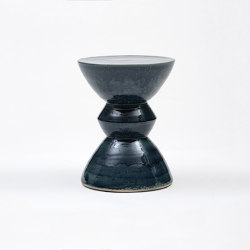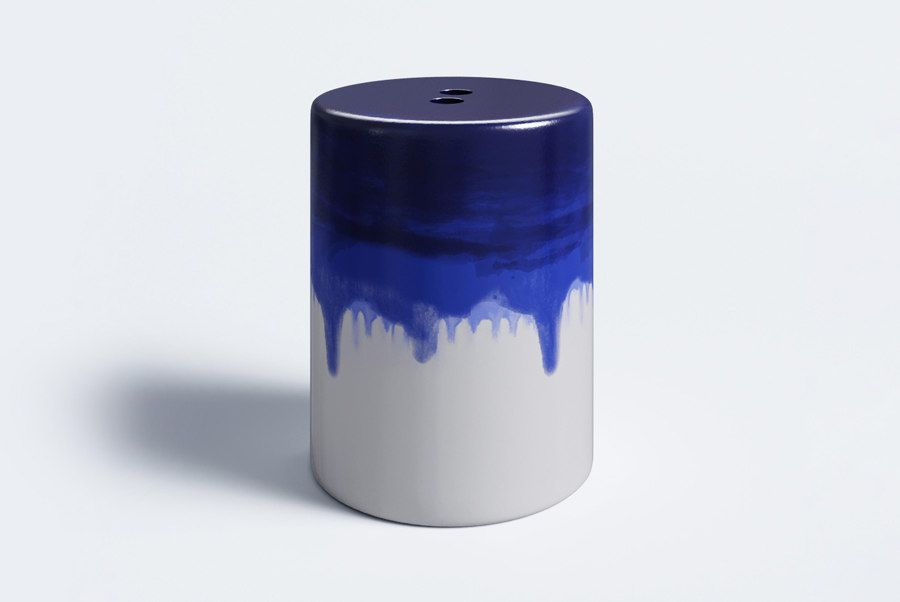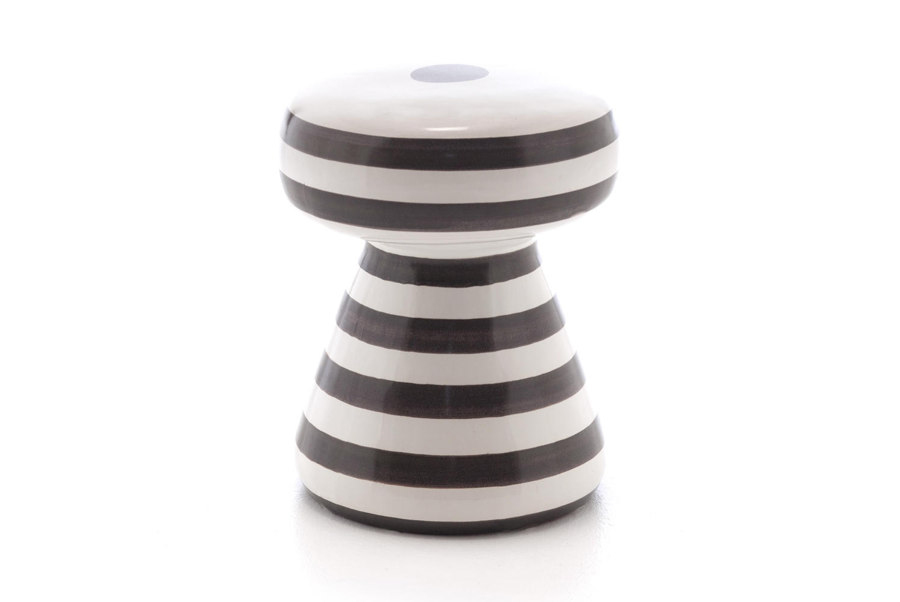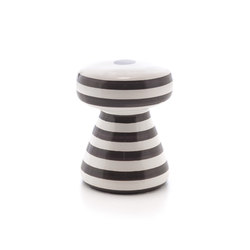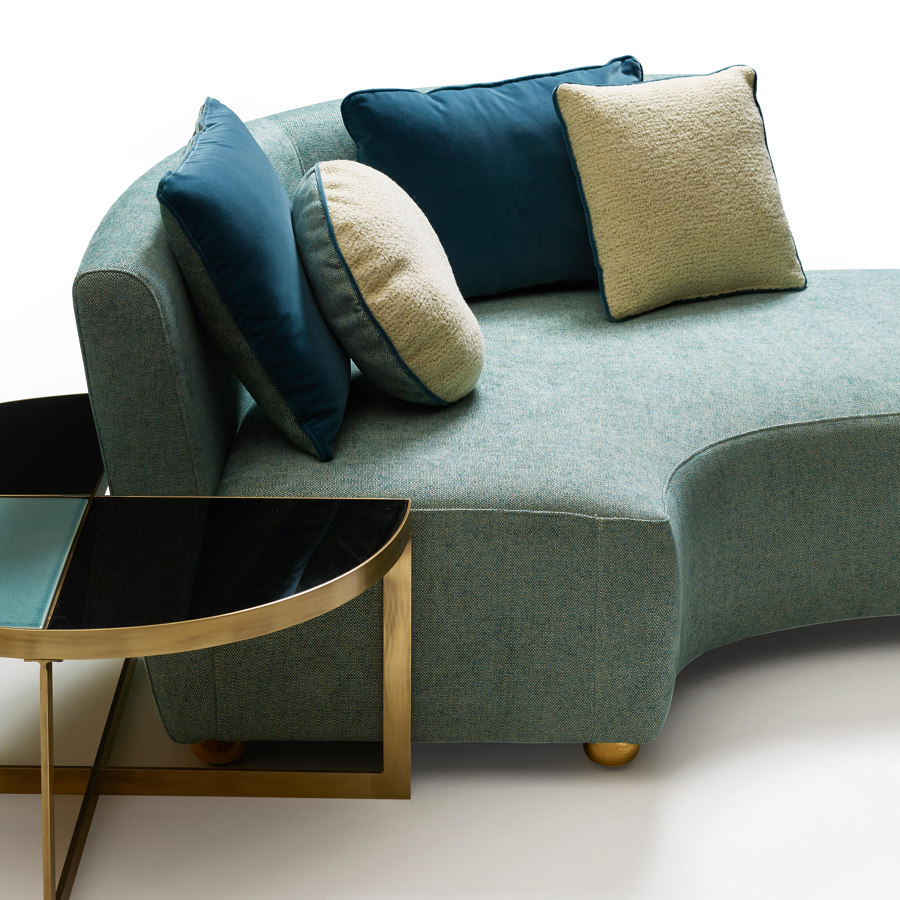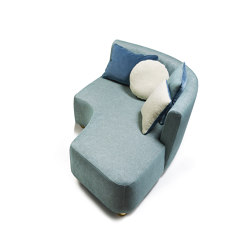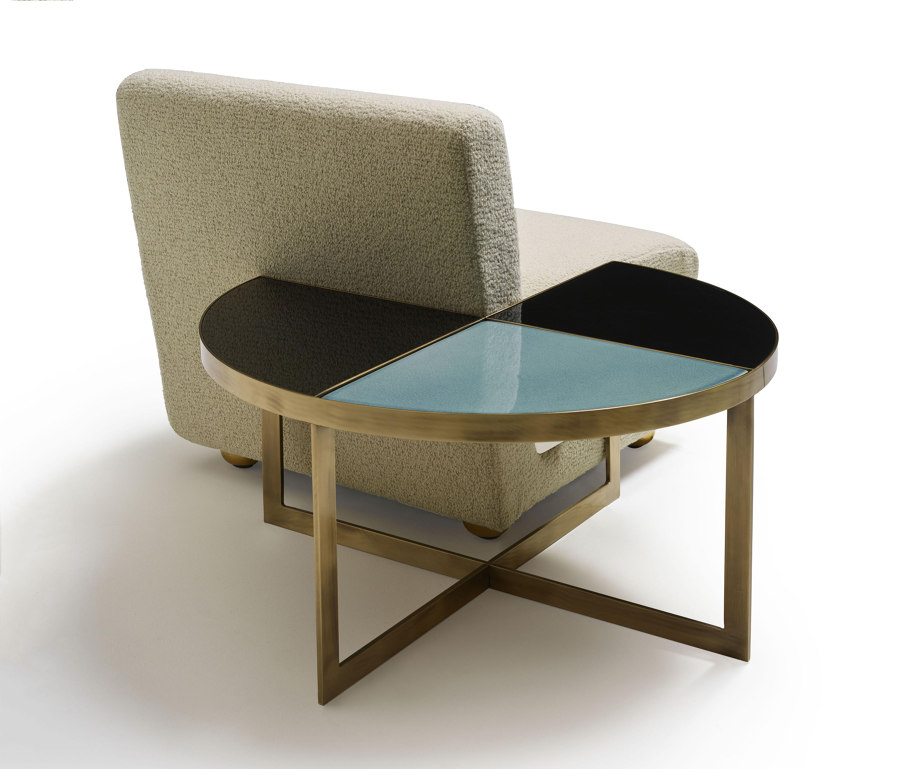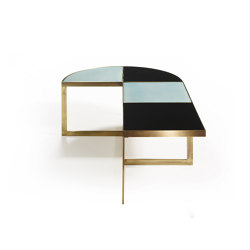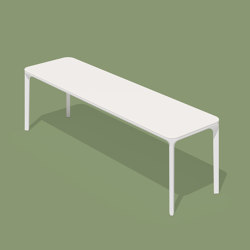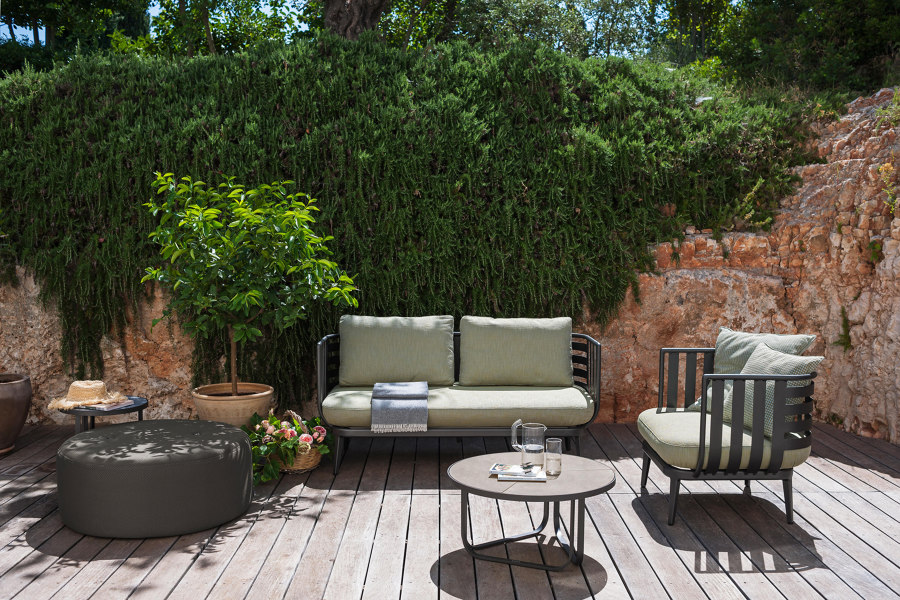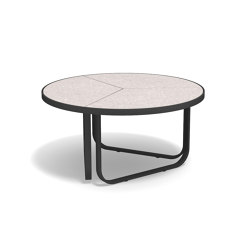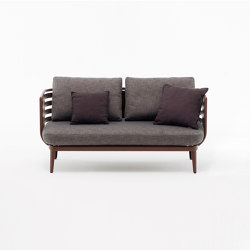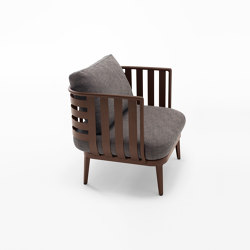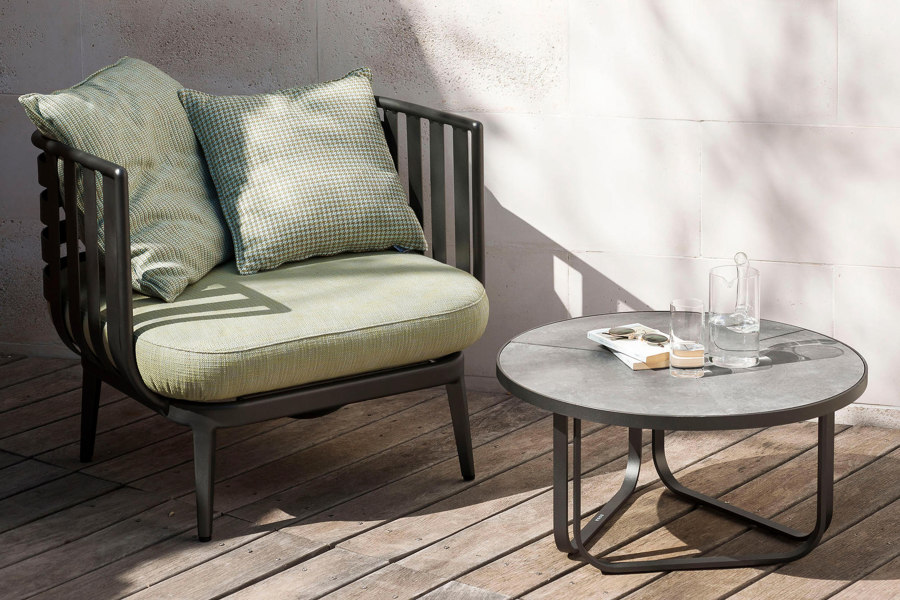Ceramic seating: ten examples of kiln-formed comfort outside the porcelain throne
Scritto da James Wormald
09.03.23
Not just for tiles and toilets, ceramic surfaces have sparkling, sculptural and hardwearing qualities that make them suitable to sit on and sit with, outside the kitchen and bathroom.
Harris & Harris uses the chemical reaction of firing to bring a unique finish to its Torrak Low stool, layering up different blue glazes to produce an ombre finish
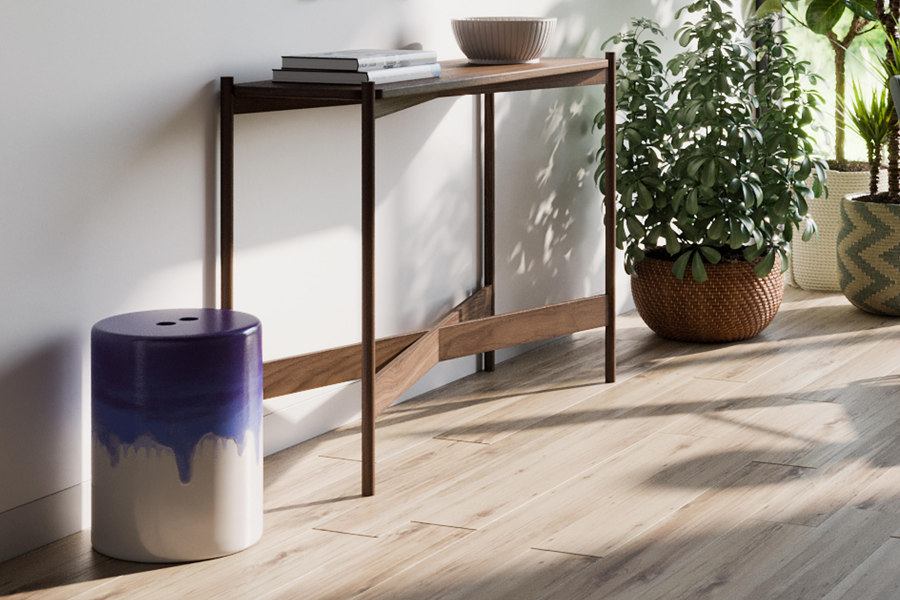
Harris & Harris uses the chemical reaction of firing to bring a unique finish to its Torrak Low stool, layering up different blue glazes to produce an ombre finish
×Whether the word ‘ceramics’ conjures up colourful patterned tile arrangements on walls and floors, deep-sunk Belfast sinks and sparkling worktops in new kitchens or sculptural sanitary ware in modern bathrooms, the design qualities of ceramic material, not to mention its sustainably circular nature, make it one of the most popular in contemporary spaces. One category it’s easy to overlook, however, is the comfort-based world of seating.
With ceramic’s natural sculptural ability to curve around the likely form of a user’s body, combined with a hardwearing structure and the application of vibrant colour, ceramics can provide interior or exterior seating solutions with something a little bit different. Here are ten examples of seats and seating collections that fully utilise the form, colour and structure of ceramics.
Cordula Kafka’s hard-cushioned Blast seat (top, middle) brings surprising comfort to the curves of the body while Marioni’s Hya A and Hya B stools (bottom) seem to pair off in discreet conversation
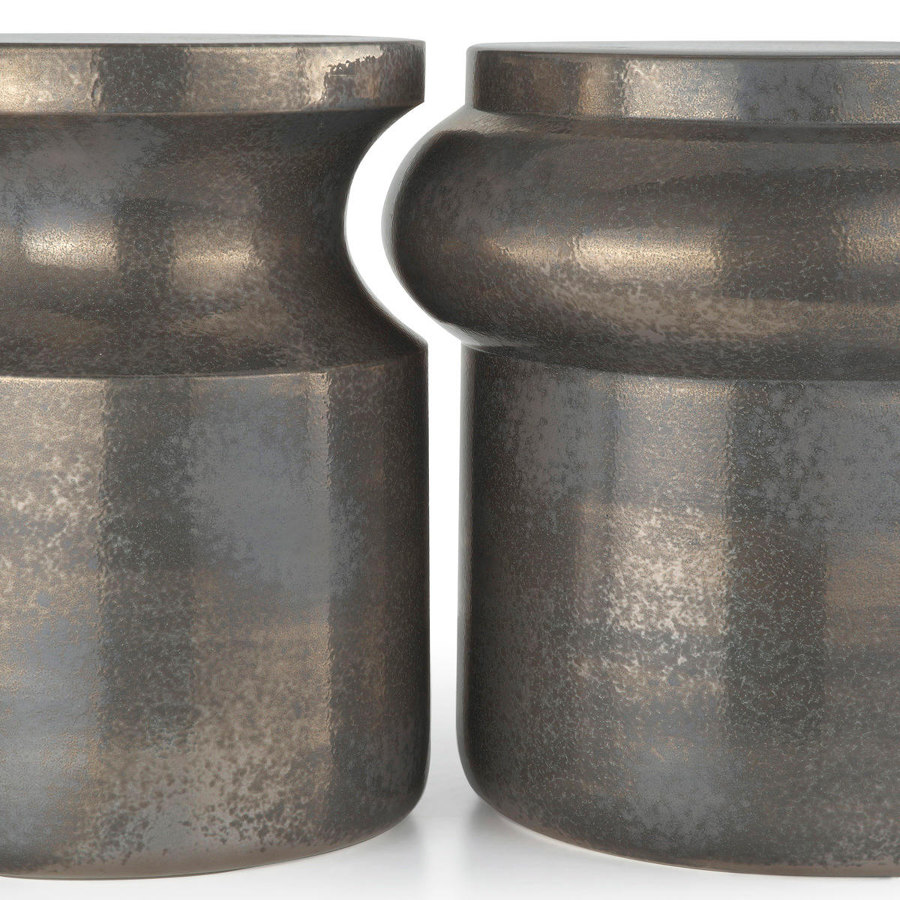
Cordula Kafka’s hard-cushioned Blast seat (top, middle) brings surprising comfort to the curves of the body while Marioni’s Hya A and Hya B stools (bottom) seem to pair off in discreet conversation
×Sculptured curves
Body positivists campaign for the acceptance of bodily curves, or lack thereof, in society. But the curved form has long been accepted by seating design, with moulded seat shells giving more comfort and support. The Blast ‘cushion’ from Cordula Kafka, for example, is formed in the style of blind-tufted upholstery, with curves that hold the body in place. Instead of fabric, however, the seat’s weatherproof foam is instead coated in glazed stoneware ceramic or laminated fibreglass, for a longer-lasting gleam.
The magic of the potter’s wheel gives ceramic forms their innate ability to combine curves and angles
The glazed ceramic Hya A and Hya B stools, from Marioni, meanwhile, instead choose to keep their seats flat to double up on functionality as side tables. But when the two versions of the stool are applied as a pair, their convex and concave edges fit together, showing stability and strength in numbers.
Piet Boon’s cut-away LOT stool (top, middle) reveals its core, while the Stoneware sculpture stool from Time & Style (bottom) uses the wheel to combine curves and angles in different dimensions
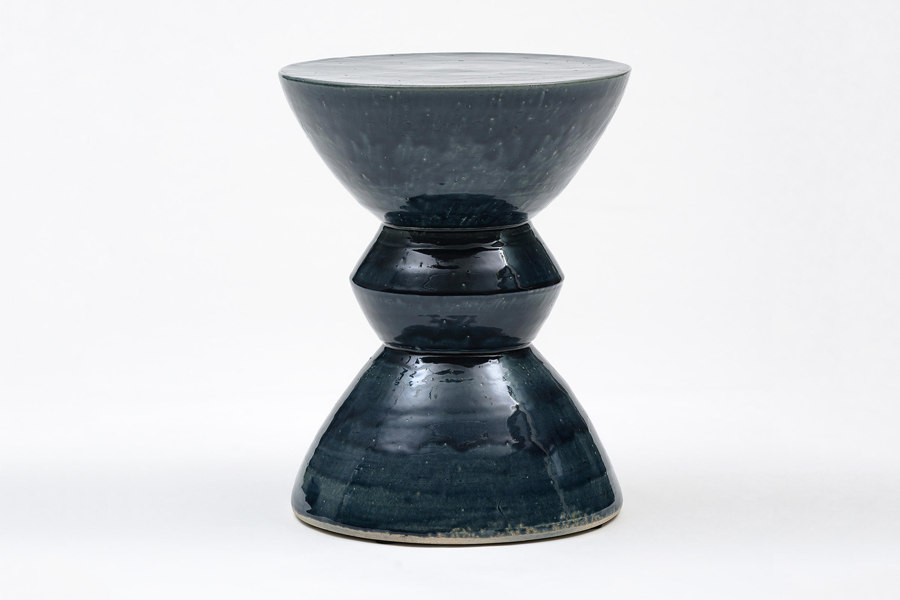
Piet Boon’s cut-away LOT stool (top, middle) reveals its core, while the Stoneware sculpture stool from Time & Style (bottom) uses the wheel to combine curves and angles in different dimensions
×Moulded angularity
The magic of the potter’s wheel gives ceramic forms their innate ability to effortlessly combine curves and angles, and allows skilled craftspeople to tease out the inherent beauty of the material. Two examples can be found in Piet Boon’s LOT and JOB stools. LOT features a curved cut-away that allows its interior core to emerge from the centre of the stool, like a tantalising button waiting to be pressed. Whereas the wheel-turned stoneware sculpture stool collection from Time & Style comes in various symmetrical iterations of blended curves and angles, like characterful pieces from a life-size chess board.
Harris & Harris’ Torrak Low Stool (top) and the zebra-striped Inout 44 stool (bottom) from Gervasoni both use the vibrancy of ceramic glaze to bring scenes together with colour and pattern respectively
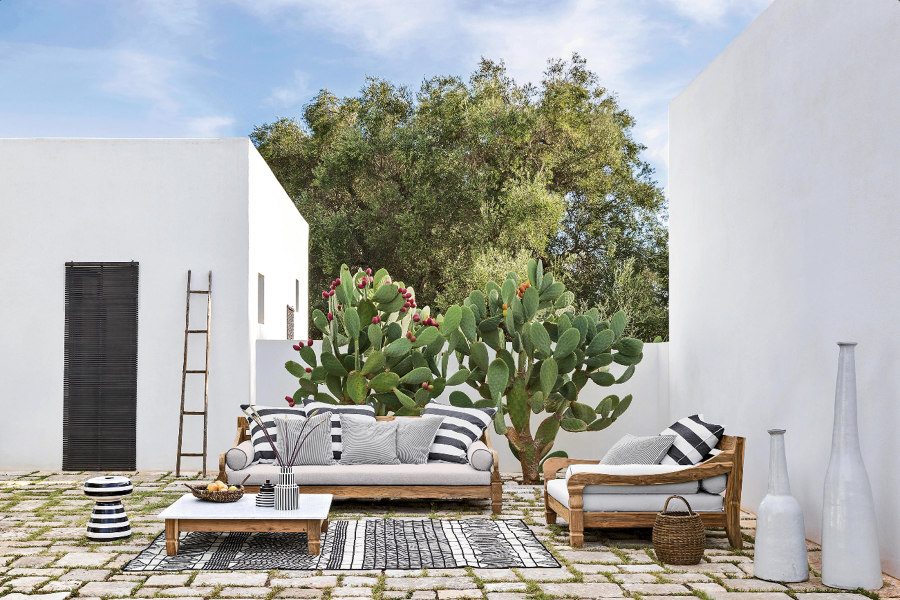
Harris & Harris’ Torrak Low Stool (top) and the zebra-striped Inout 44 stool (bottom) from Gervasoni both use the vibrancy of ceramic glaze to bring scenes together with colour and pattern respectively
×Glazed vibrancy and pattern-producing colour
The process of applying colour glaze to ceramic ware is both natural and unpredictable, with the combination of applied glaze strength and the chemical reaction of firing creating a rich depth of colour that’s entirely unique to each individual piece.
The process of applying colour glaze to ceramic ware is both natural and unpredictable
The Torrak Low Stool, for example, from manufacturer Harris & Harris, conjures up oceanic feelings by adding clouds of various blues that seem to wash over the edge of the natural ceramic cream. With deep and solid colour, meanwhile, comes a real opportunity to create bold patterns. The Inout 44 stool and side table from Gervasoni features a perfectly-applied zebra stripe, matching the contrasting upholstery of a partnering outdoor collection.
Marioni’s Baia sofas sit on ceramic feet that tie the collection together with brass-framed Carousel seating (top, middle), while Sovet’s Slim range (bottom) includes ceramic-topped tables and benches
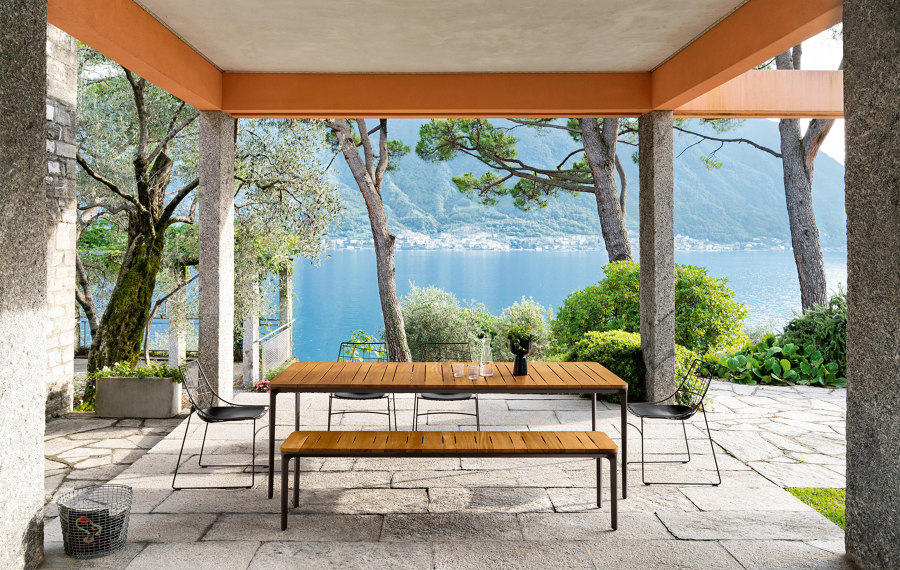
Marioni’s Baia sofas sit on ceramic feet that tie the collection together with brass-framed Carousel seating (top, middle), while Sovet’s Slim range (bottom) includes ceramic-topped tables and benches
×A smooth finish to see and touch
Showcasing ceramic’s capacity for both form and colour, meanwhile, the modular sectional sofa range, Baia, from Marioni, is designed to complement the ceramic-topped curved tables of the manufacturer’s Carousel collection – themselves contrasting glazed ceramic and painted-glass surfaces with a polished brass frame. Baia itself is set atop brass-glazed feet, using ceramic material to give them the strength, form and smooth finish required.
Elsewhere, Sovet’s outdoor Slim tables and benches include ceramic surface options in various colours and marbled, weathered or terrazzo patterns. All with an irresistibly smooth finish and a light form that lives up to the name.
Ceramic brings hardwearing quality to accompanying tables in the outdoor Thea collection from Roda (top, middle), as well as Gloster Furniture’s Maya seating (bottom)
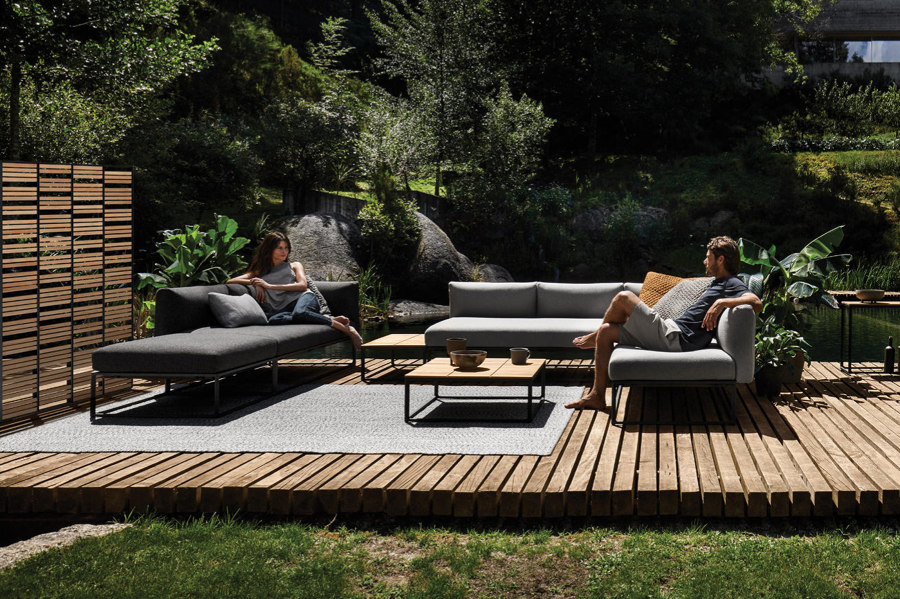
Ceramic brings hardwearing quality to accompanying tables in the outdoor Thea collection from Roda (top, middle), as well as Gloster Furniture’s Maya seating (bottom)
×Hardwearing ceramics suit the outdoor lifestyle
It’s not just what one sits on that affects their sitting experience, but also the environment they sit in. The recent innovations of weatherproof foam and fabrics have changed the way we design outdoor spaces. More permanent furniture appointments are allowing outdoor living spaces to be designed with the seriousness of those under cover.
It’s not just what one sits on that affects their sitting experience, but also the environment they sit in
The Thea collection, for example, from outdoor specialists Roda, features a coffee table topped with hardwearing porcelain stoneware, alongside the seating range’s waterproof cushions. Thanks to ceramic’s material strength, stability and simplicity to clean, meanwhile, Gloster Furniture’s Maya range features ceramic-topped end tables, as well as console tables, coffee tables and planters.
© Architonic
Head to the Architonic Magazine for more insights on the latest products, trends and practices in architecture and design.

